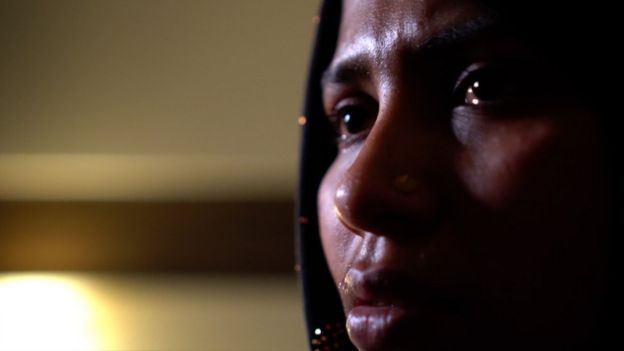MYANMAR ROHINGYA: SUU KYI ACCUSED OF 'SILENCE' IN GENOCIDE TRIAL
- Wentitrel Multimedia

- Dec 13, 2019
- 4 min read
• The Gambia has denounced Myanmar leader Aung San Suu Kyi's "silence" over alleged atrocities against Rohingya Muslims.
• The Muslim-majority African country has accused Myanmar of genocide in a case at the UN's top court.
• Lawyers said Ms Suu Kyi had ignored widespread allegations of mass murder, rape and forced deportation.
• The Nobel Peace Prize laureate has defended her country, calling the case "incomplete and incorrect".
• In her closing remarks at the International Court of Justice (ICJ) on Thursday, she said the genocide case could "undermine reconciliation".

The Gambia has denounced Myanmar leader Aung San Suu Kyi's "silence" over alleged atrocities against Rohingya Muslims.
The Muslim-majority African country has accused Myanmar of genocide in a case at the UN's top court.
Lawyers said Ms Suu Kyi had ignored widespread allegations of mass murder, rape and forced deportation.
LAWYERS FOR THE GAMBIA HIT OUT AT ARGUMENTS FROM MS SUU KYI THAT A 2017 MILITARY CRACKDOWN IN RAKHINE STATE WAS A "CLEARANCE OPERATION" TARGETING MILITANTS. THOUSANDS OF ROHINGYA WERE KILLED AND MORE THAN 700,000 FLED TO NEIGHBOURING BANGLADESH DURING THE CRACKDOWN IN BUDDHIST-MAJORITY MYANMAR. THERE WERE WIDESPREAD ALLEGATIONS OF SEXUAL VIOLENCE AND RAPE.
The Nobel Peace Prize laureate has defended her country, calling the case "incomplete and incorrect".
In her closing remarks at the International Court of Justice (ICJ) on Thursday, she said the genocide case could "undermine reconciliation".
What did The Gambia say?
Lawyers for The Gambia hit out at arguments from Ms Suu Kyi that a 2017 military crackdown in Rakhine state was a "clearance operation" targeting militants.
Thousands of Rohingya were killed and more than 700,000 fled to neighbouring Bangladesh during the crackdown in Buddhist-majority Myanmar. There were widespread allegations of sexual violence and rape.
"Madame Agent, your silence says far more than your words," lawyer Philippe Sands said, referring to Ms Suu Kyi's position as Myanmar's agent in the case.
"The word 'rape' did not once pass the lips of the agent," he added.
"What is most striking is what Myanmar has not denied," said another lawyer for The Gambia, Paul Reichler, according to AFP news agency.
The Gambia brought the case on behalf of dozens of other Muslim countries, calling on Myanmar to "stop this genocide of its own people".
How has Suu Kyi responded to the allegations?
Ms Suu Kyi - once celebrated internationally as a champion of democracy - has been de facto leader of Myanmar since April 2016, before the alleged genocide began. She does not have control over the army, but has been accused by the UN investigator of "complicity" in the military clearances.
Myanmar has always insisted it was tackling an extremist threat in Rakhine, and Ms Suu Kyi has maintained that stance at the ICJ, describing the violence as an "internal armed conflict" triggered by Rohingya militant attacks on government security posts.
Conceding that Myanmar's military might have used disproportionate force at times, she told the court that if soldiers had committed war crimes they would be prosecuted.
In her closing remarks on Thursday, she said it was "important to avoid any reignition of the 2016-17 internal armed conflict".
"I pray that the decision you make with the wisdom and vision of justice will help us to create unity out of diversity," she told judges.
"Steps that generate suspicions, sow doubts or create resentments between communities who have just begin to build the fragile foundation of trust could undermine reconciliation."
What has the reaction been?
Hasina Begum, a 22-year-old refugee who travelled from Bangladesh to be in the court for the trial, told the BBC that she wanted justice. She says 10 members of her family were killed by Myanmar's military.
"We have come here with courage to say this: if your forces didn't do these acts, why would we have left the country and why have our relatives disappeared?"

"We don't like to see her face, we don't support her. She is not supporting her people, she is supporting her military," she said.
Supporters of Myanmar's leader have gathered outside the court during the three-day trial, holding signs saying: "We stand with Aung San Suu Kyi."
What is the background?
At the start of 2017, there were a million Rohingya in Myanmar, most living in Rakhine state.
But Myanmar, a mainly Buddhist country, considers them illegal immigrants and denies them citizenship.
The Rohingya have long complained of persecution, and in 2017 the military - the Tatmadaw - launched a massive military operation in Rakhine.
According to The Gambia's submission to the ICJ,the clearances were "intended to destroy the Rohingya as a group, in whole or in part", via mass murder, rape and setting fire to their buildings "often with inhabitants locked inside".
A UN fact-finding mission which investigated the allegations found such compelling evidence that it said the Burmese army must be investigated for genocide against Rohingya Muslims in Rakhine.
In August, a report accused Myanmar soldiers of "routinely and systematically employing rape, gang rape and other violent and forced sexual acts against women, girls, boys, men and transgender people".
In May, seven Myanmar soldiers jailed for killing 10 Rohingya men and boys were released early from prison. Myanmar says its military operations targeted Rohingya militants, and the military has previously cleared itself of wrongdoing.
What is the likely outcome of this case?
For now, The Gambia is just asking the court to impose "provisional measures" to protect the Rohingya in Myanmar and elsewhere from further threats or violence. These will be legally binding.
To rule that Myanmar has committed genocide, the court will have to determine that the state acted "with intent to destroy in whole or in part" the Rohingya minority.
Even then the ICJ has no way of enforcing the outcome - and neither Aung San Suu Kyi nor the generals would automatically be arrested and put on trial.
But a guilty ruling could lead to sanctions, and would cause significant reputational and economic damage to Myanmar.
What is the current situation for the Rohingya?
Hundreds of thousands of Rohingya have fled Myanmar since the military operations began.
As of 30 September, there were 915,000 Rohingya refugees in camps in Bangladesh. Almost 80% arrived between August and December 2017, and in March this year, Bangladesh said it would accept no more.
In August, Bangladesh set up a voluntary return scheme - but not a single Rohingya person chose to go.
Bangladesh plans to relocate 100,000 refugees to Bhasan Char, a small island in the Bay of Bengal, but some 39 aid agencies and human rights groups have opposed the idea.
In September, the BBC's Jonathan Head reported that police barracks, government buildings and refugee relocation camps had been built on the sites of former Rohingya villages in Myanmar.
Credit to Source: Bbc Asia







Comments